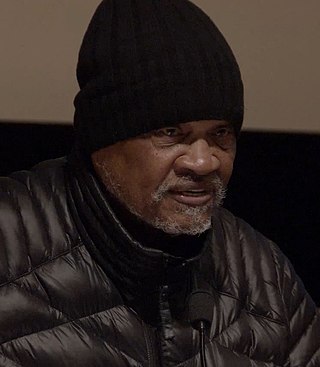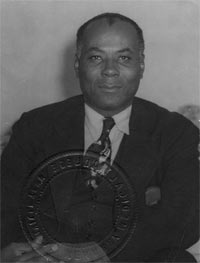Related Research Articles

Tennessee, officially the State of Tennessee, is a landlocked state in the Southeastern region of the United States. It borders Kentucky to the north, Virginia to the northeast, North Carolina to the east, Georgia, Alabama, and Mississippi to the south, Arkansas to the southwest, and Missouri to the northwest. Tennessee is the 36th-largest by area and the 15th-most populous of the 50 states. Tennessee's population as of the 2020 United States census is approximately 6.9 million.

Wild River is a 1960 American drama film directed by Elia Kazan, and starring Montgomery Clift, Lee Remick and Jo Van Fleet. It was filmed in the Tennessee Valley, and was adapted by Paul Osborn from two novels: Borden Deal's Dunbar's Cove and William Bradford Huie's Mud on the Stars, drawing for plot from Deal's story of a battle of wills between the nascent Tennessee Valley Authority and generations-old land owners, and from Huie's study of a rural Southern matriarchal family for characters and their reaction to destruction of their land, and the controversial employment of African-American laborers by the TVA. It marked Bruce Dern's film debut. The film was selected for National Film Registry by the Library of Congress in 2002.

Ishmael Scott Reed is an American poet, novelist, essayist, songwriter, composer, playwright, editor and publisher known for his satirical works challenging American political culture. Perhaps his best-known work is Mumbo Jumbo (1972), a sprawling and unorthodox novel set in 1920s New York.

East Tennessee is one of the three Grand Divisions of Tennessee defined in state law. Geographically and socioculturally distinct, it comprises approximately the eastern third of the U.S. state of Tennessee. East Tennessee consists of 33 counties, 30 located within the Eastern Time Zone and three counties in the Central Time Zone, namely Bledsoe, Cumberland, and Marion. East Tennessee is entirely located within the Appalachian Mountains, although the landforms range from densely forested 6,000-foot (1,800 m) mountains to broad river valleys. The region contains the major cities of Knoxville and Chattanooga, Tennessee's third and fourth largest cities, respectively, and the Tri-Cities, the state's sixth largest population center.

Zephaniah Alexander Looby was a lawyer in Nashville, Tennessee, who was active in the civil rights movement. Born in the British West Indies, he immigrated to the United States at the age of 15; he earned degrees at Howard University, Columbia University Law School and New York University.

Technician is the student newspaper of North Carolina State University. Its first edition was published in 1920, and it has been published continuously since that date, becoming a daily paper in fall 1988. Since 2018, the newspaper has been published on Thursdays, with stories also published online throughout the week at http://www.technicianonline.com. The newspaper is funded by in-paper and online advertising and is a part of NC State Student Media. NC State's Student Media Board of Directors oversees NC State Student Media, which includes Technician, other student-led publications, and a college radio station, WKNC-FM.

The Chattanooga Times Free Press is a daily broadsheet newspaper published in Chattanooga, Tennessee, and is distributed in the metropolitan Chattanooga region of southeastern Tennessee and northwestern Georgia. It is one of Tennessee's major newspapers and is owned by WEHCO Media, Inc., a diversified communications company with ownership in 14 daily newspapers, 11 weekly newspapers and 13 cable television companies in six states.

The American Civil War significantly affected Tennessee, with every county witnessing combat. During the War, Tennessee was a Confederate state, and the last state to officially secede from the Union to join the Confederacy. Tennessee had been threatening to secede since before the Confederacy was even formed, but didn’t officially do so until after the fall of Fort Sumter when public opinion throughout the state drastically shifted. Tennessee seceded in protest to President Lincoln's April 15 Proclamation calling forth 75,000 members of state militias to suppress the rebellion. Tennessee provided a large number of troops for the Confederacy, and would also provide more fleeing soldiers for the Union Army than any other state within the Confederacy.

Robert Walter "Whirlwind" Johnson was an American physician, college football player and coach, and founder of the American Tennis Association Junior Development Program for African-American youths, where he coached and fostered the careers of Arthur Ashe and Althea Gibson.

Robert Reed Church Sr. was an American entrepreneur, businessman and landowner in Memphis, Tennessee, who began his rise during the American Civil War. He was the first African-American "millionaire" in the South. Church built a reputation for great wealth and influence in the business community. He founded Solvent Savings Bank, the first black-owned bank in the city, which extended credit to blacks so they could buy homes and develop businesses. As a philanthropist, Church used his wealth to develop a park, playground, auditorium and other facilities for the black community, who were excluded by state-enacted racial segregation from most such amenities in the city.
African Americans are the second largest census "race" category in the state of Tennessee after whites, making up 17% of the state's population in 2010. African Americans arrived in the region prior to statehood. They lived both as slaves and as free citizens with restricted rights up to the Civil War.
Tommie Florence Brown is a former representative of Chattanooga to the Tennessee state legislature from 1992 through 2012 and a member of the Democratic Party.

Rutherford Platt Hayes was an American librarian who was the third son of Rutherford B. Hayes, the 19th president of the United States.

The Portland Observer is one of the oldest African-American newspapers in Oregon. Established in 1970, it is published weekly, in Portland, Oregon. Rev. Alfred L. Henderson founded the paper in the 1970s, in the tradition of the People's Observer, a 1940s publication that had ceased publication in 1950. That paper also originally went by the name of "Portland Observer."
Carla Blank is an American writer, editor, educator, choreographer, and dramaturge. Based in the San Francisco Bay Area, for more than four decades she has been a performer, director, and teacher of dance and theater, particularly involved with youth and community arts projects.

Styles Linton Hutchins was an attorney, politician, and activist in South Carolina, Georgia, and Tennessee between 1877 and 1906. Hutchins was among the last African Americans to graduate from the University of South Carolina School of Law in the brief window during Reconstruction when the school was open to Black students and the first Black attorney admitted to practice in Georgia. He practiced law and participated in Georgia and Tennessee politics. He served a single term (1887-1888) in the Tennessee General Assembly as one of its last Black members before an era of entrenched white supremacist policies that lasted until 1965, and advocated for the interests of African Americans. He called for reparations and attempted to identify or create a separate homeland for Blacks. He was a member of the defense team in the 1906 appeal on civil rights grounds by Ed Johnson of a conviction of rape, a case which reached the Supreme Court before it was halted by Johnson's murder by lynching in Chattanooga, Tennessee.
The West Virginia Enterprise was an African American newspaper in West Virginia. It was founded around 1885 by Christopher Payne and J.B. Cabell; it is not known when it went defunct. Payne went on two publish two other newspapers.
References
- ↑ Brown, Karen (August 1, 1982). The Black Press of Tennessee: 1865-1980 (PDF) (Ph.D. dissertation). University of Tennessee. p. 186.
- ↑ "Chattanooga Observer (Chattanooga, Tenn.) 19??-196?". Library of Congress.
- ↑ "Chattanooga Observer on Newspapers.com". Newspapers.com. August 1947.
- ↑ Chattanooga observer. OCLC 38528642 . Retrieved 2022-08-01– via WorldCat.
- 1 2 3 Brown 1982, p. 122.
- ↑ Walker, Malcolm J. (1995). "WALTER CALDWELL ROBINSON (1893-1968)". In Lovett, Bobby L. (ed.). A Profile of African Americans in Tennessee History. Tennessee State University Library. Retrieved 2022-07-19.
- ↑ Ishmael Reed (2020-09-20). "Unsung role of Black men in lifting Democratic Party". San Francisco Chronicle. Retrieved 2022-07-19.
- ↑ "Ed Temple".
- ↑ "Newspapers on Microfilm at the Tennessee State Library and Archives > C | Tennessee Secretary of State". sos.tn.gov.
- 1 2 Brown 1982, p. 186.